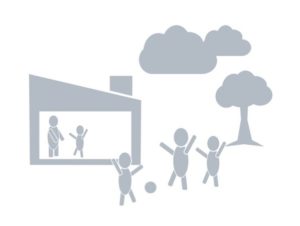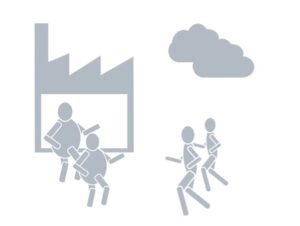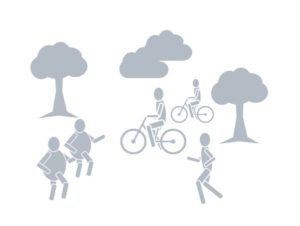Projects
Cross-cutting project CAPCOM
The cross-cutting project CAPCOM aims to enhance the theory and methodological basis of the projects. Questions adressed and results stemming from the projects are going to be integrated and reflected upon in CAPCOM in an interactive-knowledge-to-action approach bases on transdisciplinary processes.

Cross-cutting project EVA
EVA supports the projects in their multifold evaluation approaches and researches from a consortium perspective on capability and capacity building within and between projects. It aims to develop and improve instruments to assess capabilities and its relevance for health-economic evaluation.




QueB
The project asks whether implementation of an innovative “Quality Certification” process for child care centers can increase staff capabilities and optimize child care settings to promote active lifestyles among children and staff? QueB will support the ability of child care centers to promote active lifestyles through systemic organizational development processes. One focus is on the participatory development, testing, and institutionalization of a “Quality Certification” process to support sustainable development of child care centers. QueB also aims to developself-assessment “applications for mobile devices (APPs)” to map and promote capabilities of staff and children at child care centers.
Health.edu
The overall project objective is to develop “sport-related health competence” of pupils, aged 10 – 18 years, in Bavarian secondary schools.
Sub-objectives:
Targetgroup pupils:sustainably implement health promotion modules into physical education (P.E.) curriculum at secondary schools
Target group multipliers: sustainably implement health promotion modules in P.E. teacher education at universities & seminar schools
Develop and validate a measurement tool for overall project evaluation on sport-related health competence of pupils at secondary schools.
PArC-AVE
PArC-AVE hat the overall objective to promote Physical Activity-related Health Competence (PArC) among apprentices using two cooperatively developed interventions, a) a physical activity-related intervention for apprentices, and b) an interprofessional education intervention for stakeholders in vocational education (VE)
ACTION for men
Men aged 50 years or older tend to be less physically active than women, use health promotion offers to a lesser degree and show a higher mortality from chronic diseases. The project aims to change that situation by cooperation with key stakeholders in two Bavarian communities to found and facilitate a sustainable community task force that operates using participatory methods, relevant indicators, and knowledge transfer for the purpose of developing context-specific, locally-driven physical activity interventions

